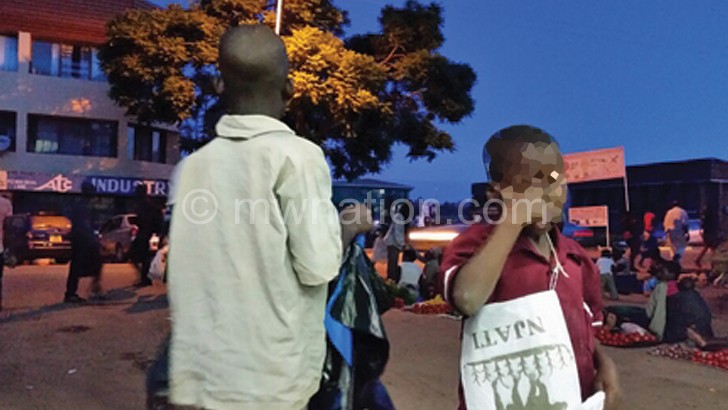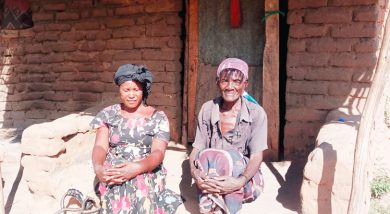Tales of street kid vending
It is 8pm in Mzuzu City. While the market area is dead silent and few motorists are on the streets, a nine-year-old minor we shall name Chifuniro is still on the streets selling plastic bags.
Donning a maroon school uniform, Chifuniro looks sad. While trying to stop tears flowing down his cheeks, he looks so angry and is not willing to talk about what is bothering him. But his colleagues say he has been beaten up by other vendors. They say since he joined the business outside the Mzuzu Main Market, other plastic bags vendors complain that he sells more than them and they do not want him around.

“It’s survival of the fittest. The moment you appear weak and have more customers, you become a victim. My age is a setback. Recently, some men robbed me of all the money I had realised from sales,” says the 12-year-old, who resides in Ching’ambo slum.
Chifuniro goes straight to the market after classes at Moyale Primary School and calls it a day at 8pm.
In the course of our conversation, Chifuniro’s mother, Gladys Chunda, joins us. She is also a vendor and sells mangoes at the premises.
Surprisingly, she is not anxious about her son’s sad face. She knows what he goes through, but still insists that he be there.
“He has been compaining of having a headache. There is no one at home to take over to allow him to rest. I spend most of my time selling mangoes, and I have no choice, but to let him sell plastic bags to boost our income,” she said, while asking the boy for money from his sales.
Chunda, a divorced mother of two, says life has not been easy.
“The little profits we make are what I use to support my family,” she says.
Apart from Ching’ambo slum, other children found in the streets selling different merchandise come from Masasa Township and Salisbury Line where poverty levels are high, according to Mzuzu City assistant social welfare officer Victor Pindikani.
While other cities such as Blantyre and Lilongwe are grappling with street kids who harass pedestrians, Pindikani says Mzuzu’s case is on using young children in street vending.
“These children are also used in theft and prostitution. For instance, recently, there was a case where commercial sex workers forced some young boys to sleep with them,” he explains.
Pindikani adds that using children in vending is increasing cases of defilement and rape in the city. He says his office receives at least four such cases in a week.
“We are trying to protect such children, but the challenge is that communities abuse our community outreach programmes and some of our volunteers are verbally abused or beaten up,” says Pindikani.
Government adopted the Child Care, Protection and Justice Act in 2010 to protect children from various forms of abuse. Chapter 48 of the Act seeks to eliminate such malpractices where children are forced into street vending.
However, Mzuzu Social Welfare office is not conducting sweeping exercises to get rid of the practice.
“Poverty is the main cause of street kid vending. So, we cannot just move the children away from the streets without empowering their parents economically to ensure the children are not sent back to the streets,” says Pindikani.
There was hope of empowering parents, who send children into streets for vending, through introduction of the Social Cash Transfer Programme, but Pindikani says Mzuzu is yet to benefit from this initiative.
“Again, our office is not included in the Public Works Programme committee to provide a list of vulnerable households that need assistance,” claims Pindikani.
Chisomo Children’s Club reports that Malawi has an estimated of one million orphans and around 10 000 children living and working on the streets in the cities. n





